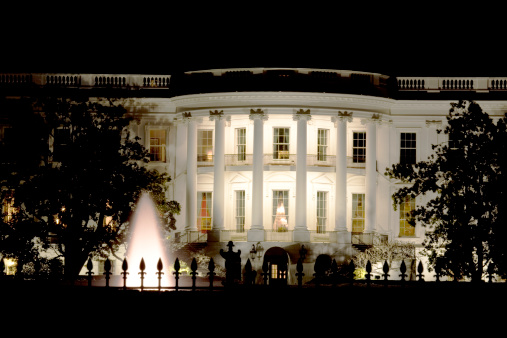The whistleblower complaint that now threatens Donald Trump’s presidency was released by the House Intelligence Committee on Thursday. It’s a political thunderclap.
The declassified, 7-page version of the complaint confirms everything that had been reported previously, including the allegation that Trump used the power of his office “for personal gain” in pressing a foreign leader to interfere in next year’s presidential election.
The complainant, whose identity remains secret, wrote that he was told by “multiple U.S. government officials that the President of the United States is using the power of his office to solicit interference from a foreign country in the 2020 U.S. election.”
Re-stating that conclusion, the report says Trump “sought to pressure [Ukraine President Volodymyr Zelensky] to take actions to help the President’s 2020 reelection bid.”
The central issue is Trump’s July 25 phone call to Zelensky, during which he suggested that Ukrainian authorities investigate former vice president Joe Biden — a top Democratic candidate for president — and Biden’s son Hunter, who had done business in Ukraine.
The whistleblower also wrote that he was troubled not only by Trump’s actions, but by those of White House aides who moved quickly and forcefully to prevent the media and the public from learning the truth.
The whistleblower said that in the days after Trump spoke with Zelensky, “I learned from multiple U.S. officials that senior White House officials had intervened to ‘lock down’ all records of the phone call, especially the word-for-word transcript of the call that was produced — as is customary — by the White House Situation Room.
White House lawyers ordered the electronic transcript to be loaded into a computer system not linked to the outside world that is generally used to handle classified national security information.
“This set of actions underscored to me that White House officials understood the gravity of what had transpired in the call,” the complainant wrote.
Officials also said this was “not the first time” the administration had kept things quiet “for the purpose of protecting politically sensitive — rather than national security sensitive — information,” the complaint says,
About a dozen White House officials listened in on the Trump-Zelensky call, standard procedure when heads of state speak directly. The whistleblower apparently was not one of them.
The writer states that the allegations in the complaint were based on months of contacts and conversations with “multiple officials [who] recounted fact patterns that were consistent with one another” and were “deeply disturbed” by what they heard on the call.
“They told me that there was already a discussion ongoing with White House lawyers about how to treat the call because of the likelihood, in the officials’ retelling, that they had witnessed the President abuse his office for personal gain,” the whistleblower wrote.
The complaint notes that Attorney General William Barr and Trump’s personal lawyer, Rudy Giuliani, were in the thick of the entire affair. Giuliani met twice with Ukrainian Prosecutor General Yuriy Lutsenko, traveled to Madrid to meet with a top Zelensky adviser and contacted other Ukrainian officials in a “direct follow-up” to the phone call.
In mid-July, before the phone call, the whistleblower learned that Trump had directed the Office of Management and Budget to suspend all promised U.S. security and military aid to Ukraine.
It’s unclear if Zelensky knew of this development during the call. The aid was subsequently restored, after the call and its nature were revealed.
Trump denies pressuring Zelensky about Biden, tweeting that it’s a “scam.”
Zelensky, at a joint news conference with Trump Wednesday at the UN, said he didn’t feel pressured by the phone call and did not want to get involved in U.S. political affairs. During much of that news conference, Zelensky, appeared to stare dejectedly into space as Trump spoke.
The whistleblower says two U.S. officials — Kurt Volker, the special representative for Ukraine negotiations, and Gordon Sondland, U.S. Ambassador to the European Union — tried to limit the potential damage that might result from Trump’s actions.
“Based on multiple readouts of the meetings recounted to me by various U.S. officials,” the whistleblower wrote, “Ambassadors Volker and Sondland reportedly provided advice to the Ukrainian leadership about how to ‘navigate’ the demands that the President had made of Mr. Zelensky.”
The Trump administration’s initial refusal to turn over the complaint led to Tuesday’s decision by House Speaker Nancy Pelosi (D-CA) to do an about-face and support a formal impeachment inquiry aimed at the president.
According to a CNN count, more than half of the members of the House of Representatives — 218 Democrats — now support an impeachment investigation.



